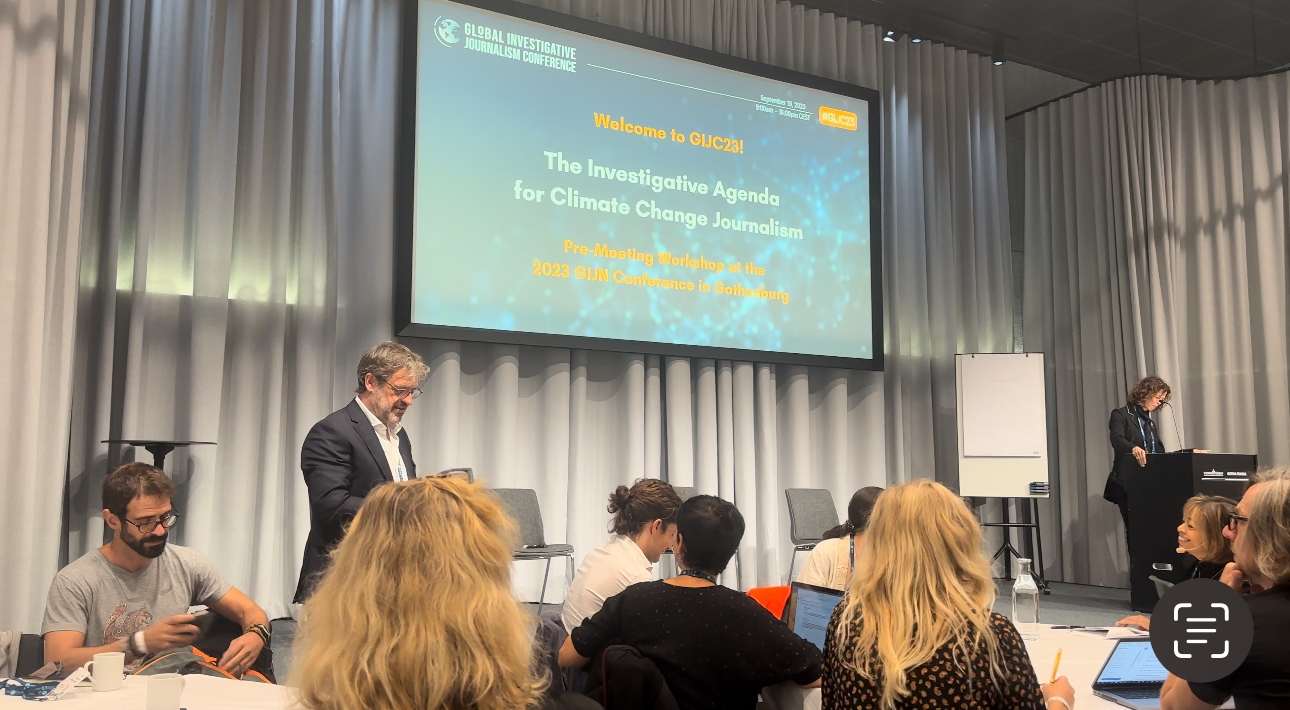News
GIJC 2023: What journalists should focus on when covering climate stories

By Elfredah Kevin-Alerechi
Rising sea levels and greenhouse gas emissions, which have a global impact on human lives, animal lives, and vegetation, are major contributors to the climate crisis.
However, as society’s watchdogs, journalists have always reported on climate crises and their consequences, and some newsrooms saw the need to carve out a climate desk dedicated to reporting on everything related to the climate. Still, climate experts say there are more dedicated areas to which journalists should pay more attention when reporting climate change.
At the 2023 Global Investigative Journalism Conference (GJC2023), Dharshan Wignarajah, the director of the Climate Policy Initiative, a UK-based organisation that specialises in finance and policy analysis and advisory, said that while some brilliant investigations have been done about climate, which are outstanding and beginning to play an important role in illuminating and highlighting some of the key issues, journalists need to take the challenge further to get governments and organisations involved to reduce the impact of climate change.
As one of the conference speakers for the “Investigative Agenda for Climate Change Journalism” session, Wignarajah advised that journalists give precedence to the under-reported coverage of climate finance to ascertain whether certain agreements, such as the Paris Agreement and COP processes, contain financial vulnerabilities.
Twenty-three affluent nations are obligated to contribute $100 billion annually to climate finance to assist developing countries in mitigating the effects of climate change. The list includes the United States, Australia, Belgium, Canada, Denmark, Finland, France, Germany, Greece, Iceland, Ireland, Italy, Japan, Luxembourg, the Netherlands, New Zealand, Norway, Portugal, Spain, Sweden, and Switzerland. However, according to an analysis by Reuters, only seven of these nations have remitted their “fair share.”
According to Wignarajah, the carbon budget is another area that needs further research since the current budget has been exhausted. “You can virtually rank who uses what from a state perspective or even from a company perspective, and I think it’s very important to shine a light on who holds historical responsibility, not just who are the biggest emitters today but who holds historical responsibility.”
The carbon budget refers to the maximum quantity of greenhouse gases that can be released during a given period. The United Kingdom, for example, established the first legally binding carbon budget for emissions over a five-year period. The country’s Sixth Carbon Budget mandates that the UK’s annual greenhouse gas emissions total no more than 965 million metric tonnes of carbon dioxide equivalent for the five years 2033-2037.
He stated that both carbon budgets and climate finance are linked to issues such as loss and damage, with many small island nations, including Sri Lanka, Bangladesh, the Marshall Islands, and Fiji, being profoundly affected by what science has unequivocally established is that human-induced greenhouse gas emissions cause certain extreme climate crises.
“I would recommend evaluating the connections between funding and finance, which will support those who are bearing the brunt of the consequences and serve as the foundation for the transition to low-carbon, resilient pathways—a direction in which we should all be progressing, albeit at varying rates,” he said.
While acknowledging that restrictions on journalistic access to information regarding crucial topics like investments and climate change have rendered it impossible for certain regions to allow free speech, Wignarajah believes journalists who have the opportunity should prioritise covering the financial complexities associated with these topics.
The Global Investigative Journalism Network has also provided a wealth of resources and guides for journalists interested in covering climate accountability, including tips on reporting climate change in their respective countries.
